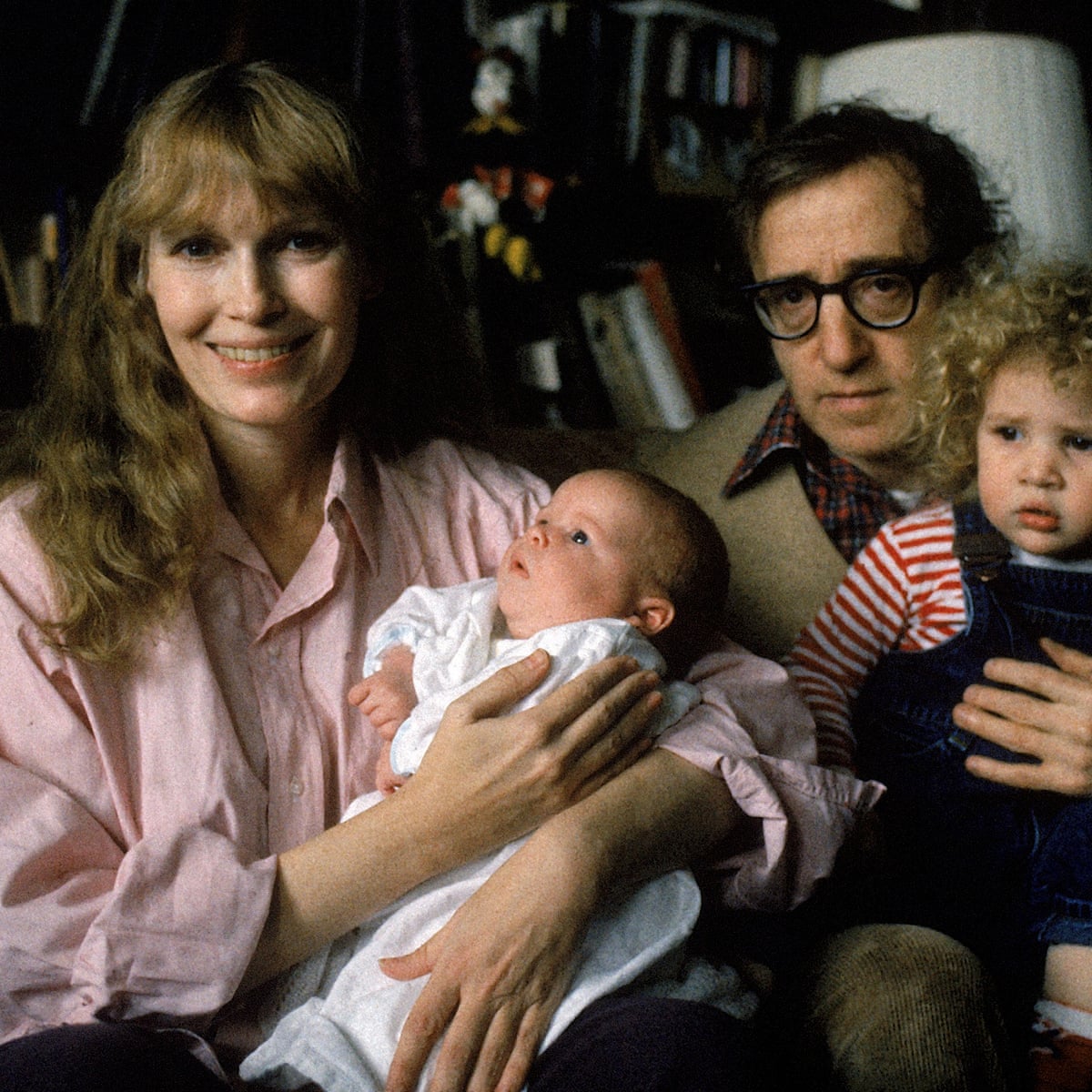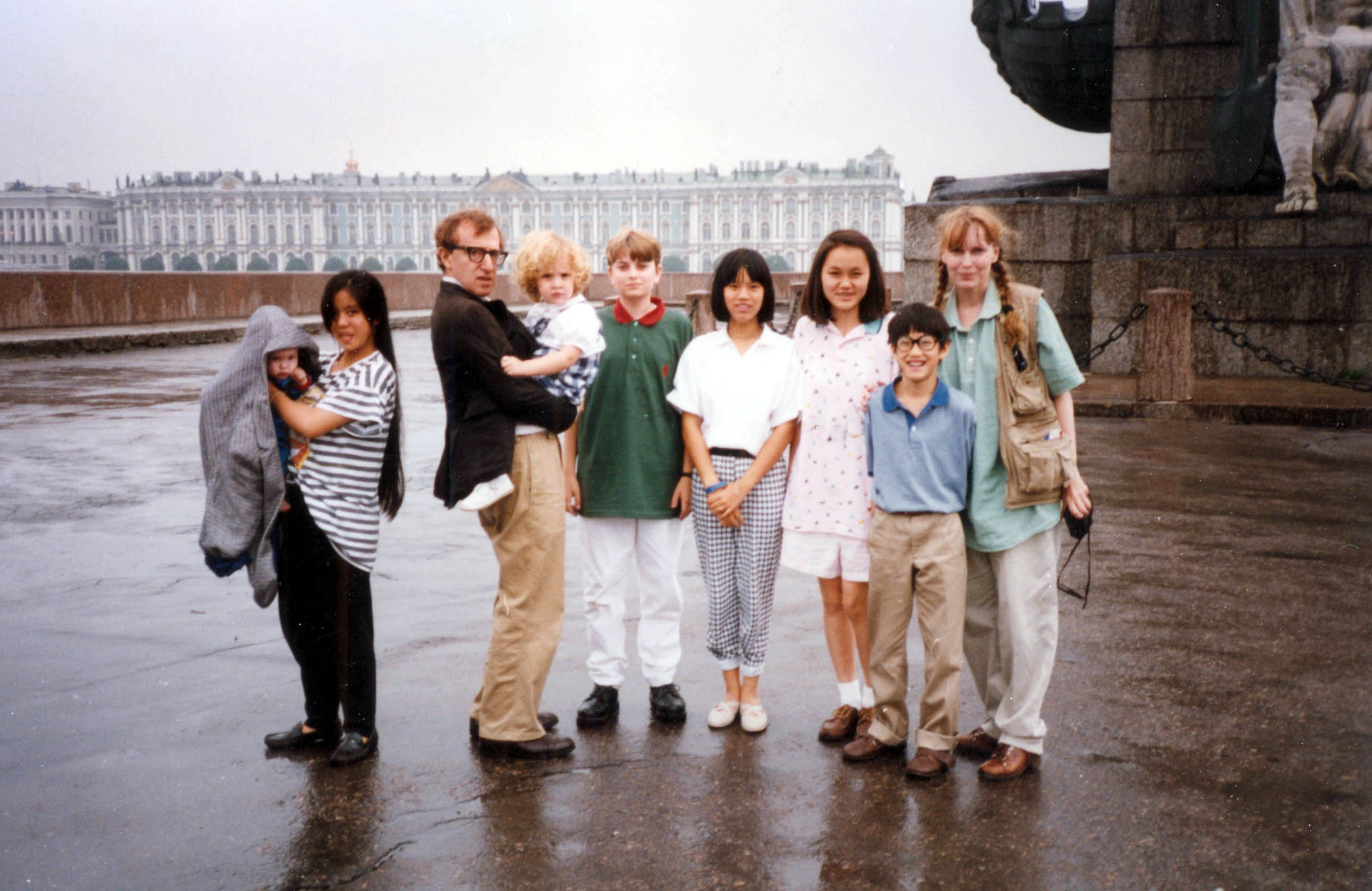

We’ve had decades to make up our minds about the scandalous Woody Allen-Mia Farrow split, with its horrific allegations of child sexual abuse.
Newsweek, “60 Minutes” and others helped us come to a conclusion about all this right after the scandal went public in 1992 — by interviewing and profiling the “press-shy” Woody.
Allen suddenly started publicizing his films for the first time in decades. Journalists like me got access. I interviewed him several times between the mid 90s into the 2000s. Shy. Deer-in-headlights at times. Disarming. But a pedophile?
Mia Farrow’s memoir “What Falls Away” showed us rage, neediness and just a touch of airy-fairy second-generation Hollywood ditziness. Still, she revealed Allen’s cultivated “intellectual” and “simple genius” image-management efforts. His pricey but intentionally rumpled wardrobe? A pose. He’d don one of his many shapeless (tailored) overcoats and “carelessly” floppy hats and slip into his chauffeured Rolls Royce.
The documentary “Wild Man Blues” captured Allen on tour in Europe, somewhat candidly, showing us a Soon Yi who is her own woman married to a flakey fussbudget who might change hotels over the location of the shower drain.
Allen’s own memoir, “Apropos of Nothing,” takes pains to further dissect, discredit and explain away the allegations in detail. Decades have passed, memories fade. He takes advantage of that. Sure, there’s a hint of smugness in Allen’s dismissals. Does that mean he isn’t telling the truth?
A flattering Soon Yi Allen “Vulture” profile assails Farrow’s parenting and alters our perception of her. Her adoptive brother Moses, now a family therapist, writes a blog post eviscerating Farrow’s parenting and and endorses the idea that his sister Dylan, the alleged victim, was “coached” into making the original accusation.
Back and forth it goes.
Is “Allen v. Farrow,” HBO’s four-part series on this cringe-worthy scandal just another swing of the pendulum? Or are we presented with the last word, the damning evidence that “cancel culture” got its man when Dylan Farrow kept repeating and reviving her charges, finally with famous journalist brother Ronan Farrow amplifying them?
Directors Amy Ziering and Kirby Dick (“Outrage,” “The Hunting Ground”) turn over stones, reveal long-concealed documents and tapes, revisit the couple’s history (Allen appears reading from the audio book version of his memoir) and dig into the specifics and legal particulars of what happened.
What they don’t do is give any credence to Allen’s deflections and counter claims. So if we’re watching a “trial” here, what we get is only the prosecution’s side. You keep waiting for the Allen “side” to be presented, even though he makes his case in his book on tape readings.
Several Farrows, starting with Mia, her sister and adoptive daughter Dylan, dominate the four-plus hours of screen time. Farrow “family friends” such as Carly Simon, a former French tutor for the kids, all weigh in.
If you only watch the first two episodes of “Allen v. Farrow,” you might notice that even the reporters, young film critics and “freelance writers” fleshing out Allen’s career and reputation and telling this supposedly two-sided story are almost to a one all women.
And if you’re listening to the accounts, you realize a lot of what we’re being served is third hand, “hearsay.” Some actual eyewitnesses recall things they say, that seemed “off” about Allen’s “obsession” with a little girl Farrow had adopted and Allen adopted himself shortly thereafter. But there’s a grating sense that a lot of what we’re seeing is people opining about things they don’t know first hand or which lie beyond their pay grade.
A writer for Vox and another for The Paris Review, a freelancer here and a freelancer there, aren’t given screen credentials that explain their presence or expertise. Where are the many Woody Allen biographers? You know, real experts? Were the journalists who appear here “cast” just to say what the filmmakers wanted to hear?
Can we really psychoanalyze the man via his movies? As Farrow herself wrote, there’s a lot of “pose” there. But maybe we can. Looking at his screenplay drafts and abandoned projects in his collected papers at Princeton show some disturbing obsessions. And if “Manhattan” doesn’t make you cringe, well…
What Dick and Ziering do — with all this court evidence, all these tape recordings Allen made of his phone arguments with Farrow after the Soon Yi nude photos and Dylan assault, all the court papers, the “Yale New Haven” hospital “report” commissioned by the Connecticut State Police but which the doctor in charge, John Leventhal, released to Allen, allowing him to hold a press conference on the hospital steps claiming “exoneration” — is attack Allen’s central threat to Farrow, the one that’s battered her for decades.
The truth is less important than “perception,” he sneered or inferred in their phone conversations. So the filmmakers unleash a tsunami of legally proven truth, as well as the circumstantial evidence and hearsay, that utterly drowns Allen’s “plausible deniability,” his professed outrage over the charges, the laughed-out-of-court “custody battle” counter suit he launched to bend public opinion.
The threatening phone calls we listen in on are damning all by themselves. Allen comes off as a rich, powerful, publicly-adored creep telling poor Farrow what was going to happen to her when he got done with her. And damned if he didn’t make it come true.
Allen went back to making his movies, living his life of comfort, fame and wealth, summoning his pick of actors and actresses, winning Oscars for actresses with his films. He even returned to visiting (British) chat shows, joking about how “unlikeable” he’s always been, so “nothing’s changed.”
Lionized, feted, and then came that 2014 night at the Golden Globes, where Diane Keaton, Emma Stone and others sang Allen’s praises as he was honored with the Cecil B. DeMille Award, pretending nothing had ever happened. Dylan Farrow and Ronan decided to start reminding everybody what Hollywood and the rest of us were forgetting.
Child. Molester. Dylan was just seven years old when it happened.
“Allen v. Farrow” does a decent enough job with the context of the times — all of the times, the 1992-93 eruption, the more recent #MeToo era that revived the charges, which were never taken to trial. And it’s great at getting at the outrageous parts of this story, the sense that justice was denied, that New York and Hollywood and the media in general just didn’t want to believe, charge or do anything at all about this.
It’s helpful hearing how the relationship between Allen and Farrow began, and seeing home movies of Farrow’s ever-expanding brood is explained if not understood.
In setting out to get their man, Ziering and Dick leave a lot out, much of it the source of decades of understandable doubt in the media and public mind about the charges and the “bizarre” family dynamic that might have provoked our skepticism. Moses Farrow isn’t here, merely his brothers Fletcher and Ronan refuting Moses’ charges about Mia.
But Ziering and Dick have Ronan Farrow dissect how Big Time PR can twist a narrative, discredit accusers and punish journalists, film people and others for not toeing the line. And he should know, having fought the Harvey Weinstein machine to the death.
As with many series like this, there’s repetition and overkill. Mia Farrow speaking for herself silences much of the image-smearing she’s endured. But the long sampling of home movies reinforcing her reasons for her many adoptions don’t remove the nagging notion that “How did she give them attention?” and with so many kids, “What was she missing that was going on?”
Who is Ronan Farrow’s real father? And is the magazine gossip about Farrow and Allen’s sexual adventures early in the relationship true? Because it might be germane. I don’t get the impression any Farrow was asked a question they weren’t eager to answer here.
Bloated or streamlined, unbalanced or “She said, he said,” and even with a “Let culture off the hook” equivocated ending, “Allen v. Farrow” still manages to do what Connecticut and New York justice didn’t. The provable lies we hear Allen tell, the evidence that we either never heard or don’t remember reading about, leave no doubt.
Yes, he’s canceled. And yes, the old creep still got off too easy.
MPA Rating: TV-MA
Cast: Mia Farrow, Dylan Farrow, Carly Simon, Fletcher Previn, Tisa Farrow, Rosanna Scotto, Maureen Orth
Credits: Directed by Kirby Dick and Amy Ziering. An HBO release.
Running time: Four episodes @55-1:15 each

